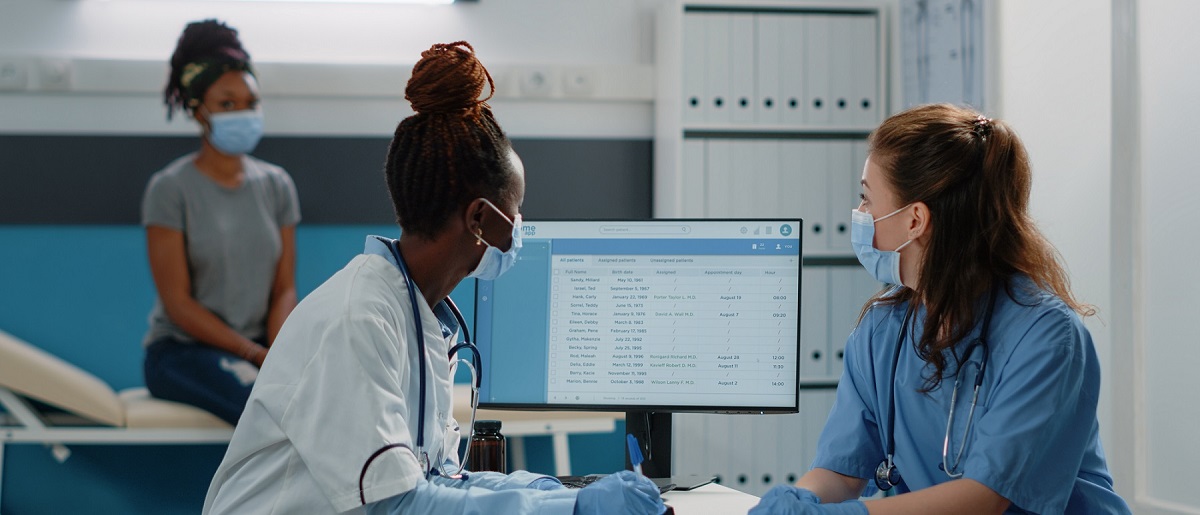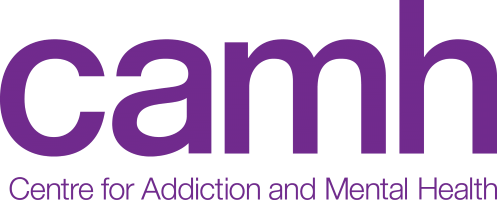
Introduction
Rapid adoption of digital health technologies during the COVID-19 pandemic has further emphasized the importance of compassionate care with digital tools (i.e., digital compassion). Digital compassion is critical to retain the humanism in health care.
The goal of this program is to provide health care professionals with an introduction to delivering compassionate care in a digital technology-driven age. This program is designed to:
- Introduce core concepts to digital compassion;
- Provide real-life examples and cases to contextualize digitally compassionate care ;
- Reflect upon your current practices and workflows through handouts
Online component: consists of 5 Modules that can be completed at your own pace through:
- Expert Presentations: video recordings of experts in the fields of health informatics, medical education, patient experience, and digital health equity.
- Case Reflections: video recordings of expert walking through the case with the digital compassion lens.
- Handout: PDF file of reflection questions and checklists for your reference to reflect on your practice.
Fee: Free
Module 1: Defining Digital Compassion
Learners will gain an understanding of digital health, compassion, and the concept of digital compassion. They will reflect on their experiences with digital compassion in their practice environment and recognize the relevance of digital compassion in their practice and organizational culture.
Module 1 Recordings:
Defining Digital Compassion (15:00 mins)
Module 1 Reflection Handout:
Defining Digital Compassion Handout
Module 2: Enhancing Care with Digital Literacy & Considering the Ethical implications
Learners will comprehend various applications of technology in healthcare, including its role in patient care and workflow integration. Learners will also explore issues related to health and structural inequities tied to digital health technologies and learn to identify when technology can either facilitate or hinder compassionate care delivery.
Module 2 Recordings:
Digital Readiness (19:00 mins)
Implications of Technology in Care Delivery (17:30 mins)
Digital Health Equity(26:30 mins)
Module 2 Reflection Handout:
Enhancing Care with Digital Literacy & Considering the Ethical Handout
Module 3: Fostering a Digital Therapeutic Relationship Through a Collaborative Environment
Learners will enhance their ability to communicate with patients and families in a digital context with compassion and respect. They will devise strategies to address digital fatigue and other issues that may arise. Additionally, learners will learn how to gather feedback on their compassionate care delivery and the integration of digital health tools.
Module 3 Recordings:
Patient Preference & Co-design(11:00 mins)
Module 3 Case Reflection:
Co-design Reflection(2:00 mins)
Module 3 Reflection Handouts
Fostering a Digital Therapeutic Relationship Through a Collaborative Environment & Feedback Handout
Creating a Trusting & Collaborative Environment Handout
Module 4: Mitigating Risk & Safety Considerations in the Virtual Care Ecosystem
Learners will gain an understanding of the implications of privacy and potential risks associated with virtual care, as well as how to secure communications and data. They will also learn how to assess the safety of a patient’s physical and emotional environment during virtual consultations and develop risk assessment plans to handle crises effectively.
Module 4 Recordings:
Patient Safety (Consent)(13:40 mins)
Patient Safety: Crises Management (Emotional/Physical Well-being)(14:15 mins)
Technology Safety (Privacy, Security, Confidentiality)(11:20)
Module 4 Case Reflection:
Patient Safety Reflection Activity (2:00 mins)
Module 4 Reflection Handout:
Mitigating Risk & Safety Considerations in the Virtual Care Handout
Module 5: Developing your Learning Plans
Learners will acquire the skills to collect user experience data and assess areas for improvement in their practice. They will also learn to identify relevant toolkits and checklists to evaluate the technology they use in their practice.
Module 5 Recordings:
Learning Plans (10:30 mins)
Technology Evaluation(13:17 mins)
Reflective Learning(19:30 mins)
Module 5 Reflection Handout:
Developing Your Learning Plans Handout
Further Learning Exercises
The exercises in this section are designed to support your learning. They focus on each of the Digital Compassion Domains to dig deeper into and are organized by each module with the related Digital Compassion Domains.
With a simple exercise you can delve further into the Digital Compassion Domains to identify how it may relate to your everyday experience and work. Please download the Further Learning Handout to explore further.
Project Contributors
Project Leads
Gillian Strudwick, RN, PhD, is Chief Clinical Informatics Officer and Scientist, Centre for Addiction and Mental Health; Associate Professor, Institute of Health Policy, Management and Evaluation, Dalla Lana School of Public Health, University of Toronto; 2018 Phoenix Project Fellow, Associated Medical Services.
David Wiljer, PhD, is Executive Director, Education Technology and Innovation, University Health Network; Professor, Institute of Health Policy, Management and Evaluation, Dalla Lana School of Public Health, & Department of Psychiatry, University of Toronto; Collaborating Scientist, Centre for Addiction and Mental Health.
Allison Crawford, MD, PhD, is Co-Chair of ECHO Ontario Mental Health, Director of the Northern Psychiatric Outreach Program and Telepsychiatry, & Staff Psychiatrist, Centre for Addiction and Mental Health; Associate Professor, Department of Psychiatry & Dalla Lana School of Public Health, University of Toronto.
Co-Investigators
Nelson Shen, BEd, MHA, PhD is Project Scientist, Centre for Addiction and Mental Health; Assistant Professor, Institute of Health Policy, Management and Evaluation, Dalla Lana School of Public Health, University of Toronto
Sanjeev Sockalingam, MHPE, MD, FRCPC, is Vice President of Education, Centre for Addiction and Mental Health; Professor, Department of Psychiatry, University of Toronto; Staff Psychiatrist, Centre of Mental Health & Wilson Centre Researcher, University Health Network.
Peter Rossos, MD, MBA, FRCP(C), FACP, is Chief Medical Information Officer & Staff Gastroenterologist, University Health Network; Associate Professor, Faculty of Medicine, University of Toronto.
Collaborators
Laura Williams, MSW, RSW, CHE, Senior Director, Patient Experience, University Health Network.
Lydia Sequeira, HBSc, MHI, PhD, is Director, Service Program and Innovations Implementations, Kids Help Phone.
Brian Lo, BHSc, MHI, is Senior Business Analyst, Information Management Group & Patient and Family Education, Centre for Addiction and Mental Health; PhD candidate, Health Informatics Research, Institute of Health Policy, Management and Evaluation, Dalla Lana School of Public Health, University of Toronto, & CIHR Health System Impact Fellow.
Team Members
Rebecca Charow, MSc, is Research Associate, Education Technology and Innovation, University Health Network; PhD student, Health Services Outcomes and Evaluation, Institute of Health Policy, Management and Evaluation, Dalla Lana School of Public Health, University of Toronto.
Maram Omar, MSc, is Research Analyst, Education Technology and Innovation, University Health Network.
Bryn Davis is Research Analyst, Education Technology and Innovation, University Health Network.
Funder:
This work was made possible due to the generous support of Associated Medical Services.


